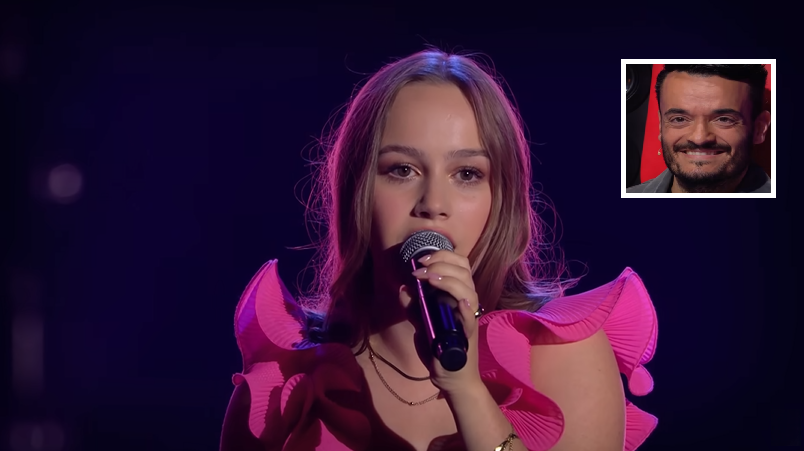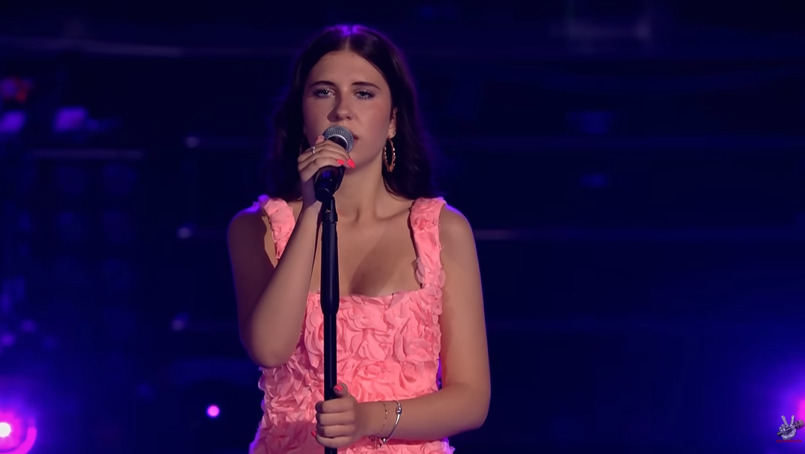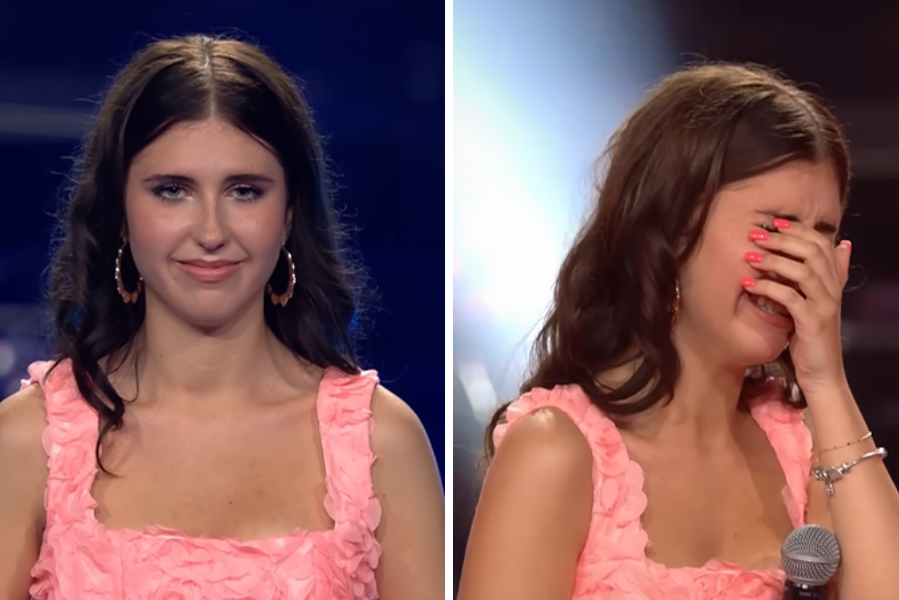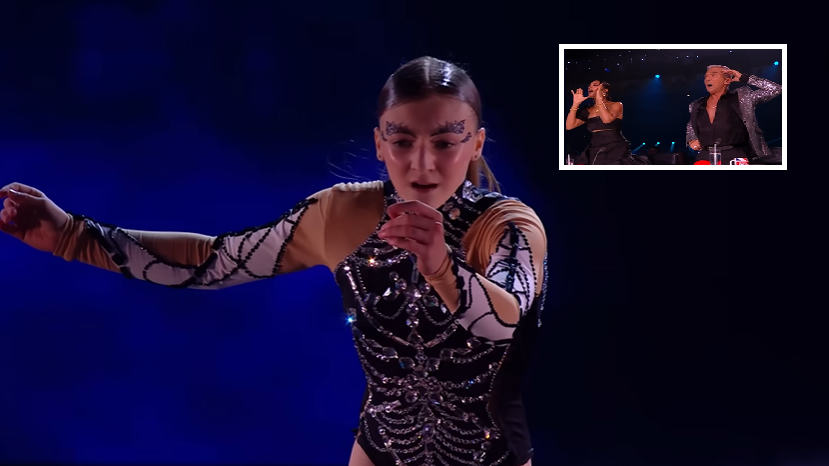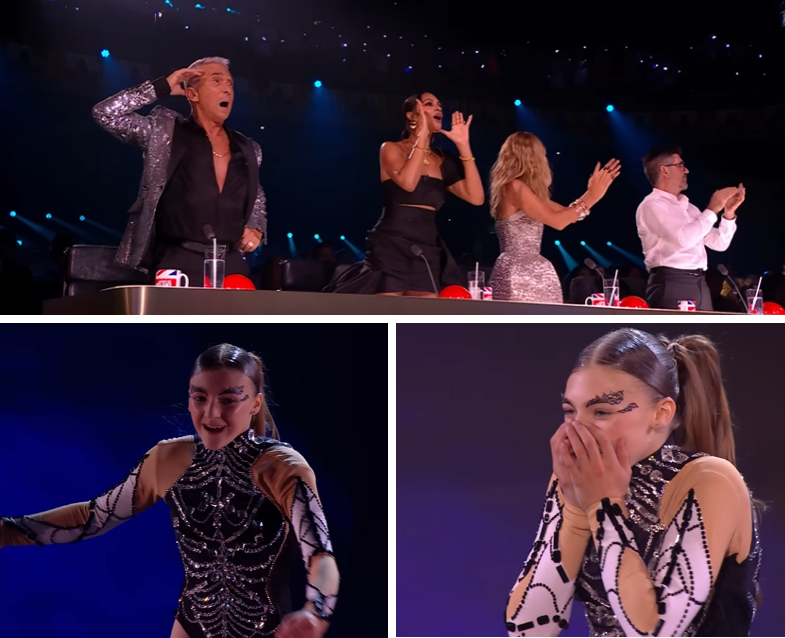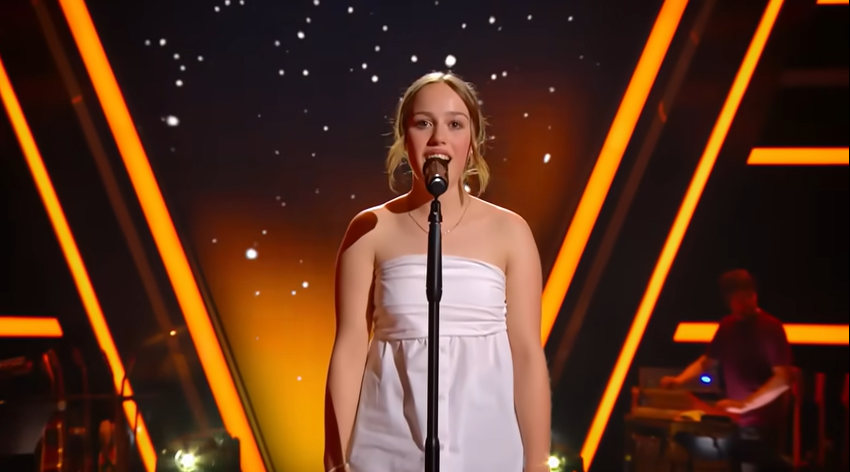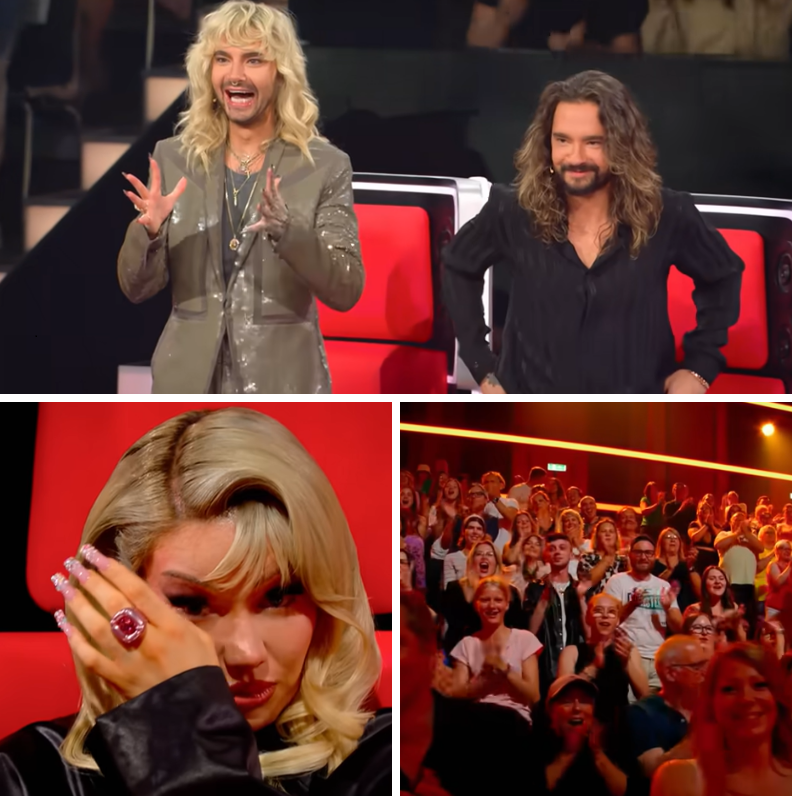Carlotta Bach is a young singer from the small town of Dautphetal in the German state of Hesse. In 2023, she gained nationwide attention through her appearance on The Voice of Germany, where she stood out with a voice rooted in classical training and a quiet stage presence that contrasted with the show’s often theatrical environment.
Before stepping into the national spotlight, Carlotta was already known in her local community as a talented singer. She attended the Lahntalschule in Biedenkopf, and regularly performed in school concerts, church services, and local events. She also played major roles in musicals and sang soprano in her school orchestra.
Her voice, clear and technically disciplined, developed in part through singing in sacred and formal settings. This experience likely contributed to her ability to handle emotionally complex and vocally demanding pieces later on The Voice stage.
The Voice of Germany 2023: A Gradual Rise
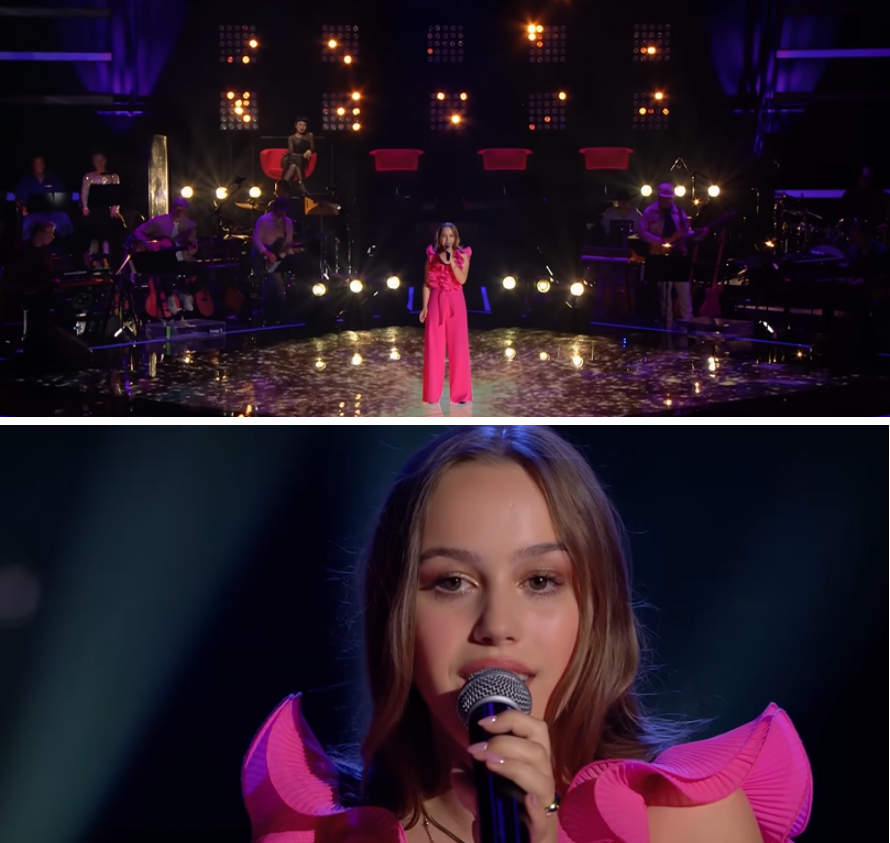
Source: Screenshots from The Voice of Germany – Offiziell YouTube channel.
Carlotta’s journey began in the very first episode of The Voice of Germany 2023. For her Blind Audition, she chose the challenging and emotionally resonant piece “Ave Maria” by Giulio Caccini. Her interpretation impressed all four coaches — Shirin David, Giovanni Zarrella, Bill & Tom Kaulitz, and Ronan Keating — earning her a rare “four-chair turn.”
She ultimately joined Team Giovanni Zarrella, a coach known for his blend of classical and pop musical background — a match that suited her vocal style.
In the Battle Round, she performed “Firework” by Katy Perry alongside fellow contestant Desirey Sarpong Agyemang. Though this pop anthem was outside her usual repertoire, Carlotta adapted well, displaying vocal control and confidence in a more contemporary genre.
But it was in the Team Fights where she truly stood out.
“You Raise Me Up”: A Defining Performance
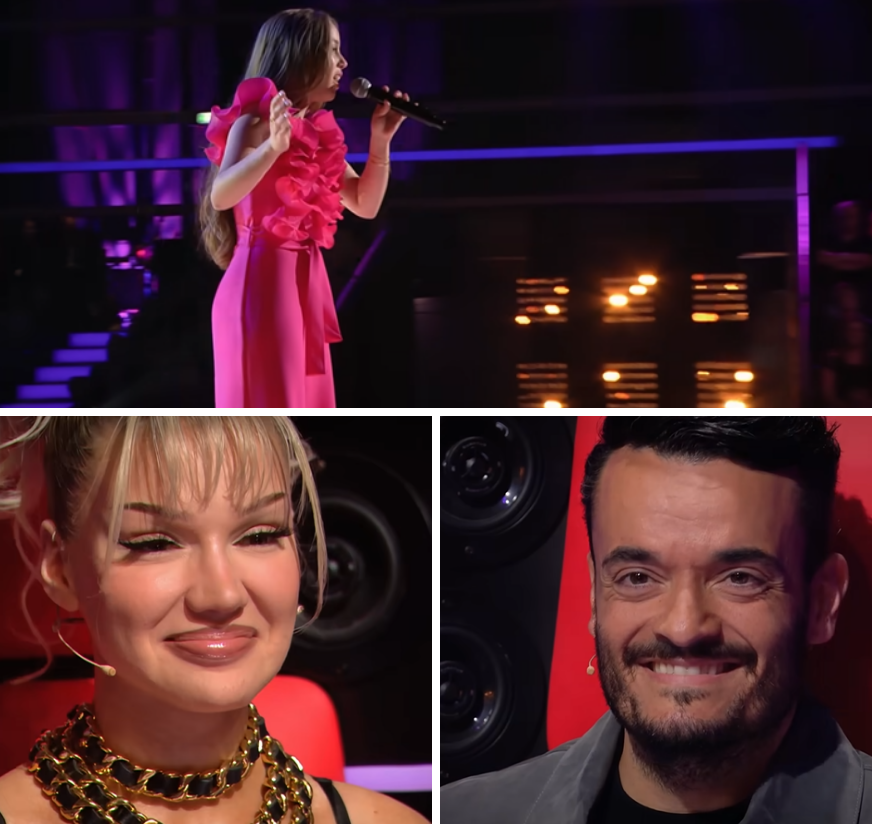
Source: Screenshots from The Voice of Germany – Offiziell YouTube channel.
Carlotta chose to perform “You Raise Me Up,” originally composed by Rolf Løvland and made famous through versions by Josh Groban and Celtic Woman. The song is often associated with themes of comfort, loss, and inspiration — themes that seemed to align naturally with her quiet but emotionally open style.
Her performance was subtle rather than dramatic, focusing on vocal clarity and steady emotional delivery. The result was a rendition that visibly moved both the audience and several coaches. Giovanni Zarrella, her coach, appeared particularly touched. Ronan Keating and Shirin David also responded with visible emotion.
Though the performance received standing ovations, the competition format required votes — and ultimately, Carlotta lost her spot to fellow contestant Simon Schmerbeck. Her journey on the show ended there.
Life After the Show: Local Engagement and Public Recognition
Despite not reaching the final rounds, Carlotta’s impact did not go unnoticed.
Shortly after her time on The Voice, she was invited to participate in the German Television Awards (Deutscher Fernsehpreis), where she appeared on stage alongside Giovanni Zarrella. She played piano and helped present one of the award envelopes, giving her additional national exposure.
Carlotta’s performance of “You Raise Me Up” was released as a digital single under the official The Voice of Germany brand and remains available on major platforms like Apple Music and Qobuz. The live recording captures the emotional quality that made the performance one of the season’s most talked-about moments.
More recently, she has continued to stay connected to music through community work. In mid-2024, she led workshops with children in Biedenkopf, giving vocal training tips and teaching exercises. Her willingness to share her skills suggests a broader vision for music — not only as a personal pursuit but also as a way to contribute to others’ development.
What’s Next?
As of late 2024, Carlotta has not announced a solo album or signed with a major label. However, her mix of classical foundation, early public exposure, and community involvement suggests that her path may not follow the typical pop career route. Instead, she may be building something more sustainable — and perhaps more personal.
Whether she chooses to pursue a professional music career or continue performing in local and national settings, Carlotta Bach has already left a strong impression. Her presence on The Voice wasn’t defined by spectacle or competition, but by a consistent commitment to musical quality and emotional honesty.
